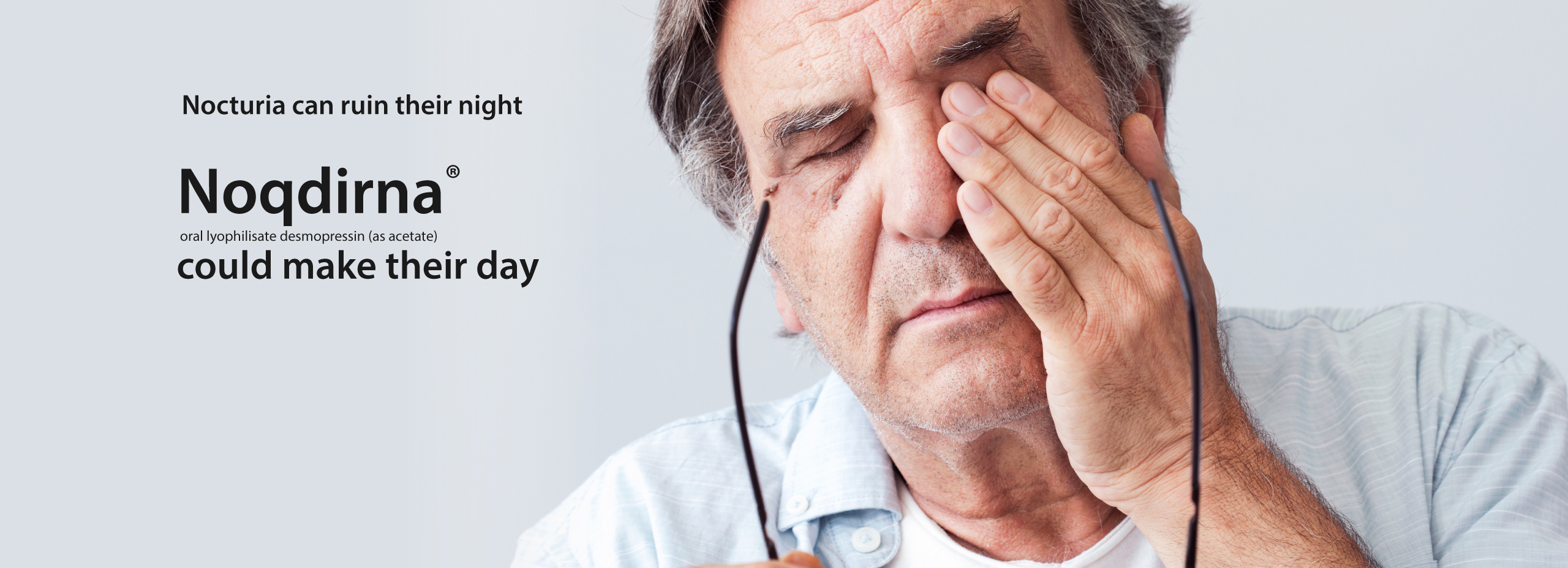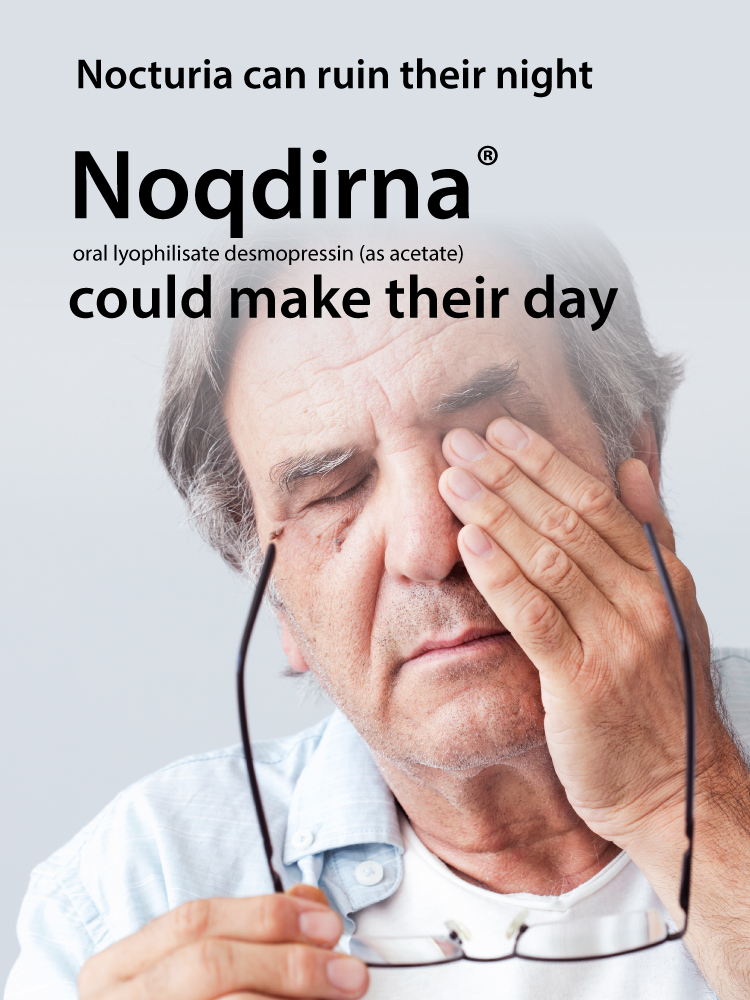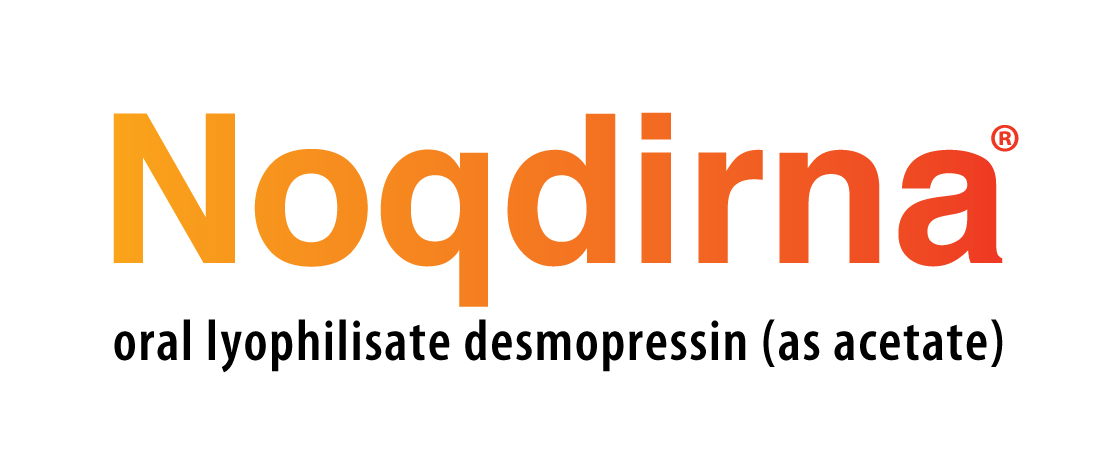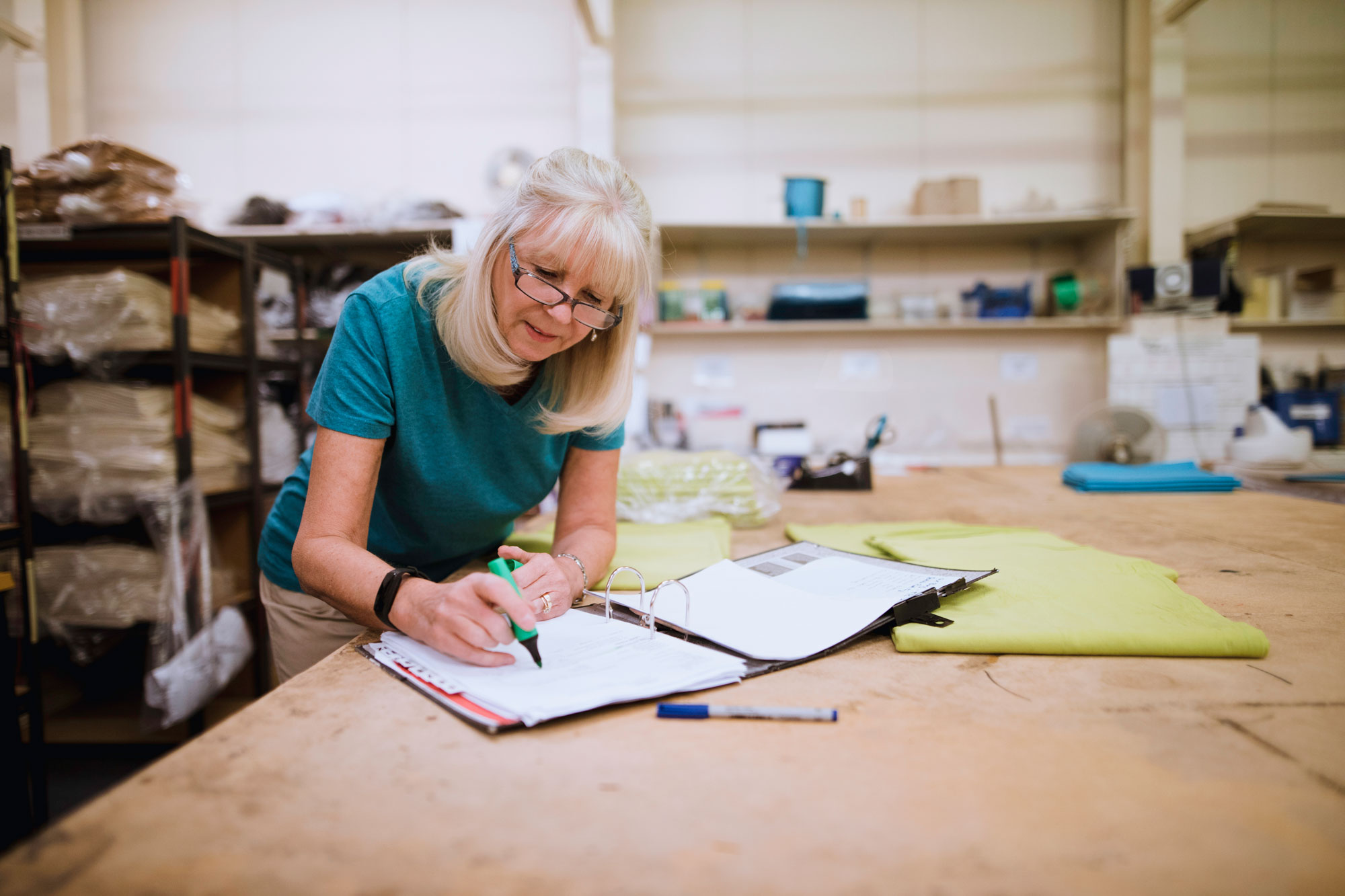


Adverse Event reporting information can be found in footer
Request a Meeting
A large study demonstrated NP was present in most patients with nocturia regardless of age, ethnicity, country and concomitant OAB and BOO therapy.1 NP is a widely under-recognised condition and often misdiagnosed as bladder outlet obstruction (BOO) [commonly caused by benign prostatic hyperplasia] and/or overactive bladder (OAB).1 NP can also be idiopathic and have its own pathology.1 Nocturia, a largely bothersome symptom of OAB, BOO and NP, can significantly compromise sleep and overall quality of life (COL) which can have a serious impact on the lives of patients and their partners.1 This sleep disturbance is associated with impaired functioning, health and productivity.2 Alleviation of NP can significantly improve a patient’s COL, but the first step is identifying these patients. The wide range of nocturia causes further complicates the identification of idiopathic nocturnal polyuria, but leaving this condition untreated can place a large burden on the patient.
*Meet Colin and Sue, who have been suffering from nocturia with no relief. Although interventions have been introduced, symptomatic relief seems out of reach for these two patients, impacting their daily lives.
Colin is a retired accountant but continues to volunteer at a national charity on a regular basis. For the past 18 months he’s been experiencing nocturia, frequency and urgency. He frequently visits the toilet at night (at least 2 times) causing daytime exhaustion and lack of concentration. On assessment, there were no signs of prostate enlargement. His GP suspects overactive bladder (OAB). Colin was prescribed an anticholinergic agent and given lifestyle modification advice to help with the OAB. Despite treatment, Colin continues to suffer from nocturia, affecting his daily functioning. In addition, he now complains of dizziness and dry mouth.

Sue is a very active and independent woman who has a part-time job at her son’s company. Sue has visited her GP with concerns of frequent visits (more than twice nightly) to the toilet. She feels that she’s been urinating in larger volumes during the night-time. Sue finds that she feels increasingly tired and grumpy during the day. This has now become a greater concern as it is affecting her relationship with loved ones. Sue admits to sharing a bottle of wine with her husband on some evenings. She currently takes medication for her low blood pressure which is well-controlled. She has not suffered any major urogenital issues in the past and her physical examination seems normal. Sue was advised on eliminating alcohol from her diet, reducing fluids before bedtime and was asked to keep a diary to monitor how often she voids and how much urine she is producing.

*These case studies are hypothetical. Symptoms and therapies described are not based on real patients.
Persistence of nocturia despite OAB or BOO treatment and lack of predisposing conditions leading to nocturia suggest an underlying aetiology.1 Nocturnal polyuria is often the underlying cause of nocturia.1 Colin and Sue are candidates for further investigation for idiopathic nocturnal polyuria.
Job Code: UK-NOQD-2000015 - Date of preparation: January 2023